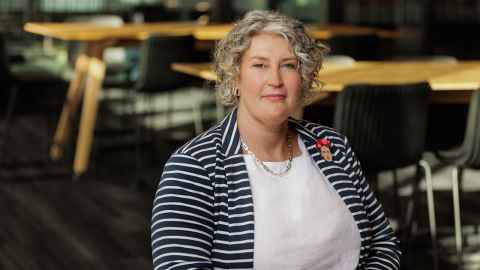Researchers launch long-Covid registry
12 July 2023
Researchers hope a newly launched registry will quantify the burden of long Covid in Aotearoa New Zealand.

Researchers are launching a long-Covid registry in the hope of painting an accurate picture of the burden of the debilitating illness in Aotearoa New Zealand.
The registry, Mātauranga Raranga asks people to confidentially provide information about their experiences relating to long Covid which will be used to accurately report on the condition. See lcregistry.auckland.ac.nz
“The registry will be the first time Aotearoa researchers will be able to quantify the broad burden of long Covid,” says lead investigator Dr Paula Lorgelly, a professor in health economics.
Participants, who may or may not have a formal diagnosis, will be guided through a survey covering topics such as demographics, symptoms and their duration, vaccine status, impacts on employment or ability to carry out caring duties, expenses involved, and impacts on whānau.
People who are unsure whether their symptoms are long Covid can visit related website longcovidsupport.co.nz to fill out a quiz.
The research project is led by Waipapa Taumata Rau, the University of Auckland in collaboration with Jenene Crossan, who has lived experience of long Covid.
Another important aspect of the research is seeing how deprivation impacts on people’s experiences of long Covid.
Ms Crossan hopes the registry will provide hard data on the number of people suffering from the debilitating disease and their experience, which will facilitate meaningful support.
“Our aim is to show that the disability that comes with persistent illness impacts everyone beyond the individual - from community, to whānau and our economy.
“We can’t pretend it doesn’t exist, it does. It is destroying lives, disadvantaging people, disrupting businesses, fracturing families and even if people are ‘bored of Covid’ and want to move on, it’s going to keep taking until we say ‘enough is enough.’
“It is time to build services to support people and do that by taking the most important first step - listening to them.”
A rōpū kaitiaki is governing the research, ensuring people’s privacy is maintained and culturally safe data sovereignty is practised. Participants will be asked for various levels of consent relating to use of their data and whether they are willing to participate in future research.
- See the registry at: lcregistry.auckland.ac.nz/
Media contact
Jodi Yeats, media adviser
M: 027 202 6372
E: jodi.yeats@auckland.ac.nz